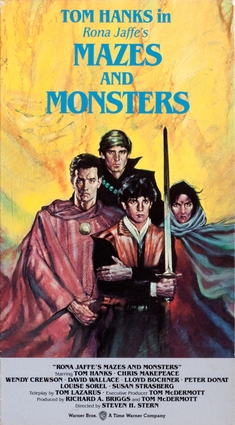Kuzcotopia
If you can read this, you are as lucky as I am.
I have been playing D&D since I was about ten, and I consider it to be my primary creative outlet. Through the game, I have created unique multi-planar cosmologies, and perhaps hundreds of gods, and hundreds more religions and religious practices to go with those gods. In younger times, I would copy concepts taken from other religious in RL, but now that I’m older, I think only about the seed of the narrative conflicts, in all of its motivations and concerns. As players often ask questions beyond the scope, I have to put myself in that mindset so I can provide answers, or riddles, or ask a question back as the situation demands.
This has become quite easy for me to do as an adult. I think seriously about religion and faith all the time, but I mostly do so in the context of creating new ones that are embedded into the fabric of political, social, and geographical systems that I am also creating. I also have to consider mystical realities beyond the Prime Material world, ones that are not culturally situated in direct material experience. I have to consider what realms without thought or movement or energy or void might look like, or might be experienced. I have to consider what other planes of existence look like, and how their philosophies inform the natures of their experiences whether epistemological or moral.
As a D&D player, I am addicted to narratives. Addicted. I ended up majoring in English for no practical reason. I have a master’s degree in Literature, again, for no practical reason. But one of the things this addiction has taught me is the tools to recognize those narratives in everything I see in the real world, in accepted history and the finite number of accepted religions and political systems it has created. I try to determine why some are exciting and why some are not, and it becomes reflex to not only consider what it is, but what it could be, and how could I use it for my narratives?
My problems with theism and it recognition of legit god concepts is most likely the very specific narrative nature of it. Because I relate to the world as acts of storytelling that I use for inspiration, I can’t help but see faith and god concepts as limited and arbitrary, serving a very specific narrative that people somehow accept as some kind of truth. Why accept a single defining story, instead of seeing endless possibilities?
But then I realize that if I can create them, tweak them, ignore them, or appropriate them, then all accepted religious narratives are essentially arbitrary. This is the most likely seed of my atheism. I suppose if I did want to believe in something, it would be an utterly invented concept of my own, and while there’s nothing wrong with that and people do it all the time, there is no way to separate the mythology I’ve constructed from my ability to understand why I constructed it, or ignore the fact that I constructed it in the first place. I can’t accept the story if I am also the storyteller. I just see that as a contradiction.
Anyone else play D&D? Has it changed your views on real world religions, politics, or history?
This has become quite easy for me to do as an adult. I think seriously about religion and faith all the time, but I mostly do so in the context of creating new ones that are embedded into the fabric of political, social, and geographical systems that I am also creating. I also have to consider mystical realities beyond the Prime Material world, ones that are not culturally situated in direct material experience. I have to consider what realms without thought or movement or energy or void might look like, or might be experienced. I have to consider what other planes of existence look like, and how their philosophies inform the natures of their experiences whether epistemological or moral.
As a D&D player, I am addicted to narratives. Addicted. I ended up majoring in English for no practical reason. I have a master’s degree in Literature, again, for no practical reason. But one of the things this addiction has taught me is the tools to recognize those narratives in everything I see in the real world, in accepted history and the finite number of accepted religions and political systems it has created. I try to determine why some are exciting and why some are not, and it becomes reflex to not only consider what it is, but what it could be, and how could I use it for my narratives?
My problems with theism and it recognition of legit god concepts is most likely the very specific narrative nature of it. Because I relate to the world as acts of storytelling that I use for inspiration, I can’t help but see faith and god concepts as limited and arbitrary, serving a very specific narrative that people somehow accept as some kind of truth. Why accept a single defining story, instead of seeing endless possibilities?
But then I realize that if I can create them, tweak them, ignore them, or appropriate them, then all accepted religious narratives are essentially arbitrary. This is the most likely seed of my atheism. I suppose if I did want to believe in something, it would be an utterly invented concept of my own, and while there’s nothing wrong with that and people do it all the time, there is no way to separate the mythology I’ve constructed from my ability to understand why I constructed it, or ignore the fact that I constructed it in the first place. I can’t accept the story if I am also the storyteller. I just see that as a contradiction.
Anyone else play D&D? Has it changed your views on real world religions, politics, or history?


